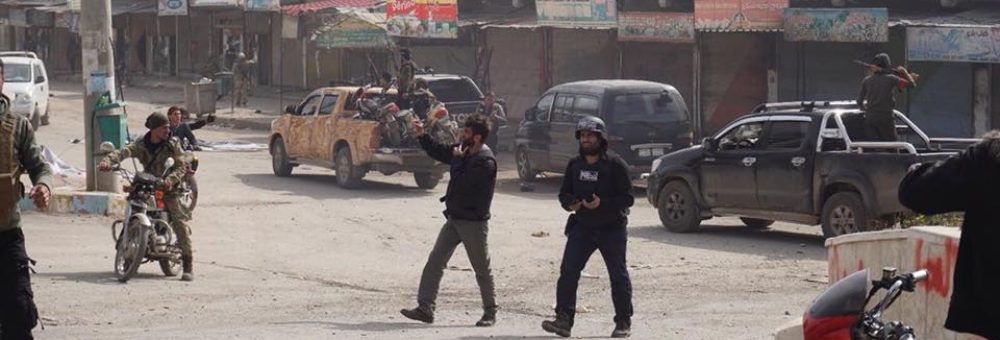Category Archives: Uncategorized
UK Muslim group threatens government with legal action
Organization with alleged links to Muslim Brotherhood could face restrictions in government crackdown.
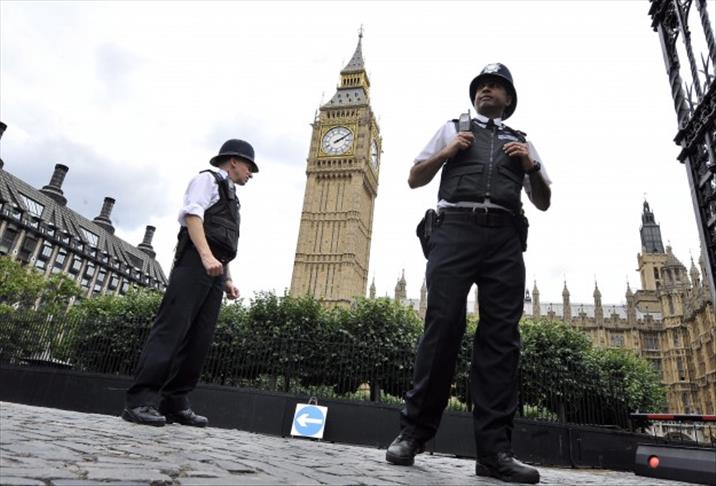
The Muslim Association of Britain has said it will take the British government to court if it attempts to place any restrictions on the organization over allegations it is linked to the Muslim Brotherhood.
The declaration came on Thursday days after a British newspaper report – attributed to government officials leaking information – suggested that, although the Muslim Brotherhood, the transnational Islamic group founded in Egypt, would not be designated a terrorist organization, the government would “crack down” on it.
According to the Telegraph newspaper, up to 60 organizations in the U.K. with alleged links to the Muslim Brotherhood are to come under scrutiny, including charities, think tanks and even television channels.
Khalil Charles, spokesperson for the Muslim Association of Britain (MAB), told Anadolu Agency: “There’s nothing in law that proscribes what we do or what we intend to do.”
“All of these things must happen within existing laws … anything else that they [government officials] chose to do, within my estimation, would be outside the law and therefore it would be challenged.”
Charles acknowledged the U.K. government could attempt to restrict what the Muslim Association of Britain does, but he said: “Yes, we expect that there will be different pathways and difficulties with things that we want to do but, because we are not doing anything illegal, we would challenge anything that stops our right to do what we need to do.”
Report ‘delayed’
In April, British Prime Minister David Cameron announced a review into the activities of the Muslim Brotherhood in the U.K., which would also look into the government’s policy towards the organization and its impact on the U.K.’s national security and foreign policy, particularly in the Middle East.
Led by Britain’s Ambassador to Saudi Arabia, Sir John Jenkins, a report was due to be completed before the summer recess of parliament.
However, AA has learned that the report has been delayed until the autumn.
Saudi Arabia and Egypt have both designated the Muslim Brotherhood a “terrorist organization” and recent reports suggested members of the organization have fled to the U.K. to escape possible discrimination in the two countries.
Khalil Charles told AA that, although the organisation shared “the main principles that the Muslim Brotherhood… including its commitment to uphold democracy, freedom of the individual, social justice and the creation of a civil society” it was “not a branch or an arm of the Muslim Brotherhood”.
After publication of the Telegraph article, Britain’s first female Muslim cabinet minister – former Foreign Office Minister Sayeeda Warsi – took to Twitter to criticize the leak.
She posted: “The ‘source’ in this piece uses lines used by one of my ex-Cabinet colleagues. V[ery] worrying if he is the leak, as suggests sanctioned leak.”
‘Al Capone method’
Warsi then tweeted again, raising her concerns of a potential crackdown on organisations allegedly linked to the Muslim Brotherhood.
Re-interpreting comments in the article, she tweeted: “‘We can go after single individuals, not for terrorist-related activity, b[u]t through the Al Capone method of law enforcement’ this is policy?”
She then added: “‘We cannot get them for terrorism, but I bet you they don’t pay their taxes’ This is policy too?!”
Warsi resigned from the government in August, saying its policy over Israel’s “Operation Protective Edge” assault on Gaza in July – in which more than 2,200 Palestinians were killed, including more than 500 children – was “morally indefensible”.
Charles also told AA that the organisation believed “the ideology of the Muslim Brotherhood is neither extreme nor has it ever endorsed the use of violence”.
British daily the Financial Times reported in August that a delay in the publication of the report had been due to government fears of Arab allies’ displeasure over it stopping short of recommending a “terrorist” label for the Brotherhood.
Deadly attacks
Charles said that he did not want to “speculate” as to why the report had been delayed but, from what he had read from the leaks in newspapers, he believed the report had “vindicated” the Muslim Brotherhood as no links to terrorism had been found, given there was no recommendation to ban it.
The MAB confirmed that they had attended official meetings with a government inquiry group and outlined their position.
MAB said it told the group its organisation was separate from the Muslim Brotherhood, but there could be MAB members who were also part of it, adding “that is entirely up to them [as individuals]”.
Downing Street said that the report had been completed in the summer and passed to ministers and would be released in the autumn, but denied the release had been delayed.
Mohamed Morsi – Egypt’s first freely elected leader and a Brotherhood leader – was removed by the Egyptian military in a coup d’etat in July last year.
Egypt’s government, which launched a sustained crackdown on the Muslim Brotherhood after Morsi’s removal from power, has accused it of sponsoring deadly attacks on security personnel in Egypt over the past year.
The group has denied the claims.
Read the original article published in Anadolu Agency on 23 October 2014
UK Muslims criticize PM’s Charity Commission proposals
Islamic charity and human rights campaigners accuse British government of anti-Muslim bias.
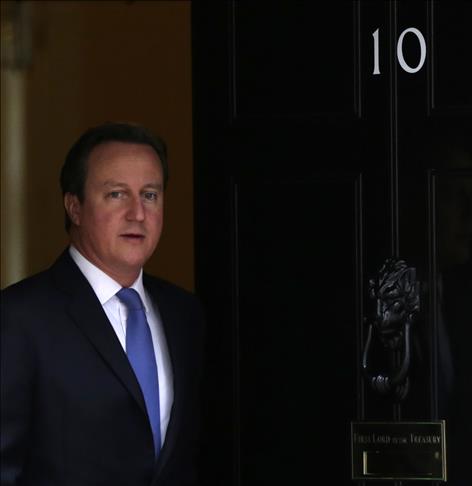
Muslim rights groups in the U.K. have responded with anger to new proposals announced by Prime Minister David Cameron to give extra powers to the country’s charities regulatory body.
The government announced earlier Wednesday that it was proposing giving the Charity Commission, the regulatory body for British charities, more powers to be able to freeze charity bank accounts and suspend or remove trustees.
The proposals included banning people with convictions from being a charity trustee, disqualifying a person from being a charity trustee if the commission finds them “unfit,” shutting down charities which are under investigation and issuing official warnings for less serious cases.
The proposals came after a cross-party committee of lawmakers described the Charities Commission in February of this year as being “not fit for purpose.”
Reacting to the announcement of the proposals, the London-based Islamic Human Rights Commission (IHRC) said: “The reality is that the Charity Commission will have more teeth to harass innocent and law-abiding Muslim-run organizations.”
Wrongly accused
In a statement to The Anadolu Agency, the IHRC said: “Given that the government’s definition of extremism now incorporates a latitudinous range of beliefs and behavior, it will allow the Commission to target a larger number of charities, simply on account of the religious and/or political beliefs they or their partner organisations appear to hold.”
Similar sentiments were also expressed by Cage, an organization which campaigns on behalf of people wrongly accused of crimes under the so-called “war on terror.”
Cage spokesman Amandla Thomas-Johnson told the AA: “It seems as though the government is slowly turning the heat up on Muslim charities.”
A number of Muslim organizations have had their bank accounts closed down over the past year.
In August, Finsbury Park mosque, international development charity the Ummah Welfare Trust and the think-tank Cordoba Foundation all received letters from HSBC bank giving them notice that their accounts were being closed.
“These actions again have created further suspicion of Muslim charitable donations,” said Amandla.
‘Unfair move’
Cage said the move was unfair, especially given that a poll last year revealed the British Muslims gave more to charity than any other group in the U.K.
Earlier this year, Barclays froze Cage’s bank account after the U.K.’s Treasury Department contacted the bank, following the arrest of former Guantanamo detainee Moazzam Begg, a signatory on the account.
All charges against Moazzam were dropped earlier this month.
One of Cage’s donors, the long-established and reputable Joseph Rowntree Foundation, was also put under investigation by the Charity Commission.
The charities watchdog said it had been looking into charities that use aid convoys to Syria as a front to fund “terrorism.”
The IHRC also accused the government of using the Charities Commission to target Muslims.
‘Instrument of repression’
The recent appointment of the former counter-terrorism chief, Peter Clarke, to the board of the Charity Commission “underlines this transformation of the Charity Commission from an oversight agency into an instrument of repression against British Muslims” the IHRC said.
Questions have also been raised about the head of the Charities Commission, William Shawcross, regarding his political views.
Shawcross was a supporter of the 2003 Iraq war — deeply unpopular in the U.K. — and has defended the imprisonment under extrajudicial arrangements of suspects at Cuba’s Guantanamo Bay, begun during the U.S. administration of George W. Bush, as “model justice.”
In October 2011, Shawcross was appointed a member of the board of directors of the Henry Jackson Society — itself a registered charity — which has been accused of having anti-Muslim views.
In the National Review in 2010, Shawcross attacked the Labour Party for being “in awe of Islam.”
And in an interview with the Sunday Times in April this year, he claimed: “The problem of Islamist extremism and charities … is not the most widespread problem we face in terms of abuse of charities, but is potentially the most deadly. And it is, alas, growing.”
‘Grab for power’
Amandla said: “Members of the Henry Jackson Society have long pushed an anti-Muslim agenda and have called for the targeting of the Muslim community.
“We worry about someone like Shawcross, with such views and links, being at the helm of the (Charities) commission.”
Cage said that there were already laws in place to ensure that charities are compliant with laws and regulations, but added that Cameron’s proposals showed a “further grab for power under the pretext of a supposed terrorist threat”.
“The politicization of the Charity Commission is extremely worrying, and giving them more powers will see them further entrench an anti-Muslim civil society agenda,” Amandla said.
A spokeswoman for the Charity Commission told The Anadolu Agency that the organization “completely rejected the accusation the commission is disproportionately targeting Muslim organizations.”
Read the original article published in Anadolu Agency on 22 October 2014
Scotland: Nos seemingly ahead, but some not happy
Some leaving yesterday’s polls dejected – embarrassed at way ‘Better together’ campaign was conducted.
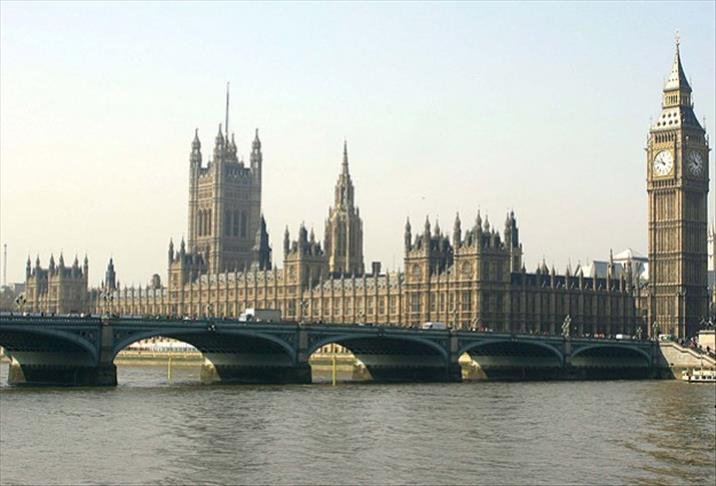
With the “No” vote ahead in polls to predict Scotland’s future, you’d expect their voters to be in celebratory mood, but some are leaving Thursday’s vote dejected – unhappy at the way the Better Together campaign has gone.
John McIntyre, voting in the affluent parish of Murrayfield around three miles from Edinburgh city center, told the Anadolu Agency that even though he’d voted “No” he was not happy with the way the campaign had conducted itself.
“I don’t think the Better Together campaign did well at all…they should have campaigned on the philosophy of the vote, of not creating divisions,” he said.
The campaign’s response has come in for derision in many quarters, not least in a Scotsman article last year, where journalist Joyce McMillan wrote that Better Together’s response to the independence debate has – “in too many cases” – been “so reactionary, so negative, and so fundamentally disrespectful of the Scottish Parliament as an institution, that I now find it hard to think of voting with them.”
“I find myself so repelled by the tone and attitudes of those who should be my allies that I am gradually forced into the other camp,” she said.
The campaign has also come under fire for exaggerating the narrative of Scottish nationalism and support for independence in general. Several of its members have described independence supporters as “anti-English,” others claimed opponents have a limited outlook on identity and culture, and in September 2013 the Labour Party’s Scottish leader described support for independence as “a virus.”
Some voters angry at the campaign went all the way Thursday, switching from one side to the other.
Before polls opened, British tennis star Andy Murray tweeted – in a last minute boost to the “Yes” campaign – that such behavior had made up his mind.
“Huge day for Scotland today! no campaign negativity last few days totally swayed my view on it. excited to see the outcome. lets do this!” he wrote.
When the “Yes” campaign took a short-lived lead in opinion polls last Sunday, it was followed by a flurry of warnings from banks, retailers and the International Monetary Fund about the financial implications of independence – some of which threatened to move South of the border if Scotland went it alone.
Scotland’s First Minister Alex Salmond called for an inquiry into the warnings, accusing the British treasury of leaking market sensitive material to media.
The British media – seen by many as pro-“No” – has also come under the scrutiny of “Yes” voters after First Minister Alex Salmond accused BBC Political Editor Nick Robinson of heckling him with questions during a press conference.
Tensions were apparent Sunday when thousands of protestors gathered outside the BBC in Glasgow to demonstrate against what they said were the corporation’s “bias.”
Supporters in the audience had clapped when Salmond sneered about the BBC’s “impartial role as a public sector broadcaster.”
Speaking to the Guardian Wednesday, Salmond said British Prime Minister David Cameron had fought the “Better Together” campaign in a “miserable” way.
“His jacket is on a shoogly nail,” he stated, using a Scottish expression which means he should run for the hills, or at least hide behind his desk – that he may well be facing potential redundancy.
“You would not need to resign if you fought it properly but it was the way he did it. Just on the grounds of incompetence he should be pulled up. His conduct has been demeaning,” said Salmon.
After opening at 7 a.m. the polls are set to close at 10 p.m., during which time 4,285,323 people – 97 percent of the electorate – will decide if Scotland pulls away from England, Northern Ireland and Wales.
The 32 local authorities will give their results to the chief counting officer Mary Pitcaithly in Edinburgh who will declare the final result on Friday morning, celebrations and sorrow following – depending on what side you are on.
Read the original article published in Anadolu Agency on 18 September 2014
Scottish Muslims mostly see future outside UK
‘It’s about improving my community, for my people, for Muslims, and mainstream society,’ says ‘Yes’ voter.
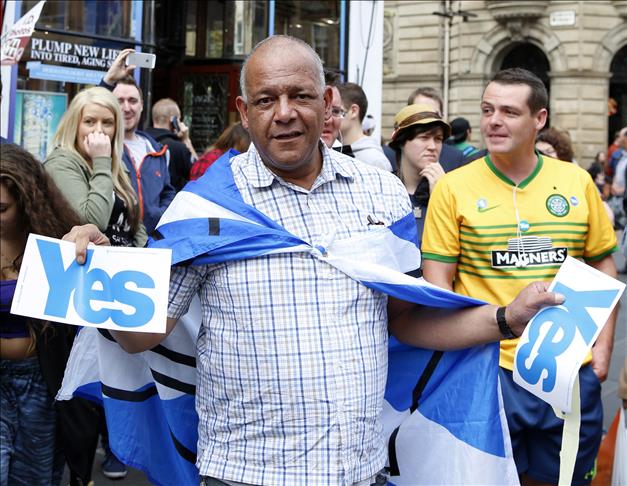
On the streets of southern Glasgow, independence posters in Urdu stare from windows, cars – prayer beads hanging from mirrors – beep their horns in support of “Yes,” and kids dribble footballs around women wearing brightly colored salwar kameez dresses.
The district of Pollokshields is “one of the most diverse areas in Scotland,” Scottish National Party Councillor Norman MacLeod proudly tells the Anadolu Agency as he stands on a terrace street corner while campaigning with other members of the country’s Asian population.
He’s dressed in a smart shirt and V-necked jumper, and is waving an ID card to let everyone know who he is. He has “Yes” stickers and “Yes” badges aplenty, and leaflets at the ready.
This area is predominantly South Asian, many of those who live nearby members of Scotland’s 77,000 Muslim population – of which Glasgow has 30,000. They are a minority in the country of more than 5 million, but when it comes to independence they want to make sure their voices are just as loud.
Campaigner Nighet Nasim is speaking to passers-by, stopping to tell AA that she wants to be “governed here in Scotland and not by Westminster [the home of the British parliament].”
“This is really about improving my community, for my people, for Muslims and mainstream society… we have this one chance to create something really positive,” she says.
Around us, grocery shops flog Asian spices, mannequins are adorned with Muslim dress and “Azadi [Freedom] for Scotland” is everywhere. Other than a few red Labour Party “No” posters, the purple and white of the anti-independence campaign is nowhere to be seen.
In the capital – around 40 miles down the M8 motorway – is the Edinburgh Central Mosque, which is surrounded by restaurants, take-aways and cafes. But walk into the Mosque restaurant itself and you’ll find that the majority of people are not even Muslim.
It could be that the food is cheap, that it’s so tasty – the lip-smackingly good sweet smell of chicken curry hangs in the air – but it’s more likely a sign of the level of integration of Muslims and how their food and culture has become a part of local society.
This view is reflected by Zahid Ali, who has been campaigning for “Yes.”
“I’m a Scotsman, Scotland is my home,” he tells AA, but then he no longer makes it about Scotland, he makes it about somewhere else.
“I think Scottish society is more accepting of Muslims,” he says. “As far as the Scottish community is concerned, it doesn’t matter if I’m Muslim or not… It [the independence referendum] is such a broad based issue that everybody is on board.”
He brings up Britain’s colonial legacy – the overseas possessions and trading posts established by England between the late 16th and early 18th centuries, particularly in Asia, which created the largest empire in history.
“I feel that Scotland is not tied into the colonial values of Britain. I see myself as less British and more Scottish,” he says. “There’s less blood on the Scottish flag than on the British.”
It’s a consensus that appears to be widespread in Edinburgh and Glasgow, and offers some explanation as to why so many Muslims, on both sides of the debate, have actively engaged in the politics of the referendum.
“If anything happens in regards to the Muslim community, First Minister Alex Salmond is ready to meet us at short notice,” says Ali. “He is ready to meet representatives of the Muslim community.”
Mariam Berrada is a 20-year-old student in Edinburgh who refers to herself as “Scottish Muslim.” She is also voting “Yes,” but switched from voting “No.”
“I was ‘No’ by default I think… but after hearing the arguments I changed my mind,” she told AA.
“I feel like British and Muslim are not compatible… I feel like British, it doesn’t really work well with ‘Muslim’,” she says, citing far-right groups such as the English Defence League and the British National Party. “We [Scots] are much more open minded.”
Mazhar Khan lives in Edinburgh. He says he’s undecided, but is leaning towards “yes,” Britain’s foreign policy a dominating factor.
“Westminster does not listen to Muslims when it comes to Iraq, Palestine or any other foreign policy issue,” he says. “In an independent Scotland I feel that we would have more of a say on foreign policy, and the SNP have already shown that they would speak out against Israel.”
In another working class area of Glasgow, AA caught up with the Scottish National Party’s Humza Yousaf.
Yousaf – a member of the Scottish Parliament since 2011 – says he believes that two thirds of the Muslim community is voting “Yes” – Britain’s foreign policy a major factor.
“In the last few years people have been able to see the juxtaposition and difference in approach from the Westminster government and the Scottish government, and that’s probably recently played out in the crisis in Gaza,” he added.
During this year’s blitz on the coastal territory by Israel, Edinburgh’s position was at odds with the U.K. Whereas London announced only a review of arms exports to Israel, Salmond called for an arms embargo – seen as evidence that a “yes” vote would free Scotland to choose a different foreign policy than as part of the U.K.
It’s not purely about foreign policy, though says Yousaf. There are other issues driving Scottish Muslims towards “Yes.”
“I think immigration is an issue, there’s a lot of anti-immigration and xenophobic rhetoric coming from London, driven by UKIP [the United Kingdom Independence party, which advocates pulling Britain out of the European Union and limiting the right of its citizens to enter], and instead of challenging those views the main political parties have been conforming to a lot,” he says.
“We have a different of approach to those issues… Plus the bread and butter issues, the economy, free education, all those things are quite important to the Muslim community,” he adds.
There are always those, though, whose focus is not so much on the short-term benefits, but what could happen in the long term if “Yes” does not lead to the prosperity that its campaign suggests.
Asif Osmani is a Professor at Edinburgh University. For him, talk of separation brings up memories and parallels with the partition of India and Pakistan.
“Nothing good will come of it, history tells us that… If the ‘Yes’ campaign wins, then the economy will be effected, and when that happens people will turn on the minorities, that means us… Muslims… It’s only natural that this will happen,” he says.
“Muslims voting ‘Yes’ is like turkeys voting for Christmas.”
He doesn’t even smile.
His wife, Saadia, a public relations consultant, agrees with him, but does not draw the same sub-continent parallels.
“It’s better to stay united… I’ve lived in England and I see us as the United Kingdom,” she says, adding that if the “Yes” campaign wins, she may think of moving back.
Read the original article published in Anadolu Agency on 17 September 2014
UK leaders in pledge to Scotland ‘if’ it stays in union
Labour, Conservative and Liberal leaders promise ‘extensive new powers’ to Scottish parliament if countrymen vote ‘No’.
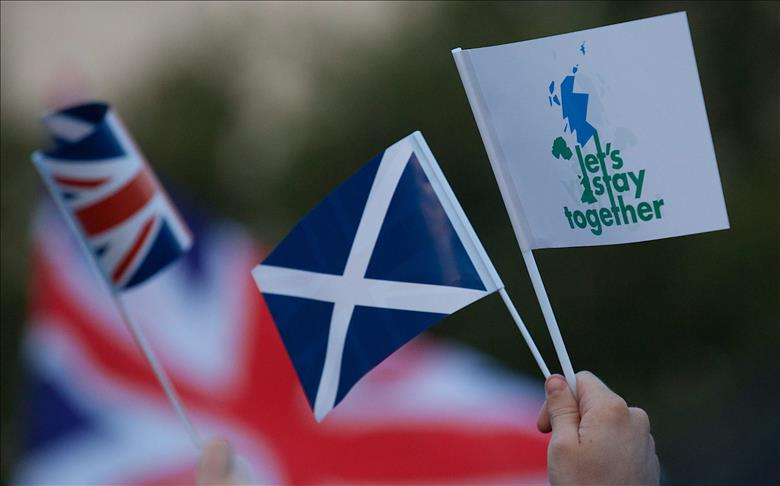
With just two days left until Scotland goes to the polls in a highly anticipated independence vote, political leaders scrambling to keep the country in the U.K. have pledged to devolve new powers to the Scottish government if its people vote “No.”
On the front page of the Daily Record newspaper, Prime Minister David Cameron, Labour Leader Ed Miliband, and Liberal Leader Nick Clegg are pictured under the headline “The Vow” on Tuesday.
In the event of the country voting “No” Thursday, the three men promised “extensive new powers” to the Scottish parliament “delivered by the process and to the timetable agreed” by the three main parties.
With “No” leaders highlighting a lack of public spending on education and health as a main factor in the territory wishing to break away, the trio promised that “the UK exists to ensure opportunity and security for all by sharing our resources equitably.” They pledged “categorically” that the “final say on how much is spent on the NHS [Britain’s diminishing public-funded national health service] will be a matter for the Scottish Parliament.”
Outsides of the front pages on the damp streets of the Scottish capital, the “Yes” campaign is taking a more prominent role. Pro-independence banners can be seen hanging from Edinburgh windows, locals wear “Yes” badges and it’s the “Yes” campaign’s blue and white literature and followers that deluge the city.
University student Gavin Christy, 19, told the Anadolu Agency that even though he didn’t want to force his opinion on anyone else he’d be voting “Yes” – “mainly because of if we vote no it will stay the same.”
Charity worker Bob Randall told AA that he thought Scotland would be a “freer and more equal society” if people voted “Yes.”
“The referendum is a big opportunity for Scots. I have been a ‘Yes’ voter since I was young. I could never vote ‘No’,” he said.
There was, however, a scattering of “No” campaigners and supporters around, the occasional dash of red among the blues in the early morning gloom.
“I strongly believe we should be in UK,” said a Mrs. Brown. “We are happy and fine as things are.”
With around 500,000 of Scotland’s 4.2 million registered votes still undecided, supporters from both sides were scurrying backwards and forwards in the rain, seeking the unsure out and trying to convince them which way to vote.
Musician Claire Campbell is yet to make up her mind, but hinted that recent announcements by the International Monetary Fund, banks and retailers about the financial implications of independence – some of which have threatened to move South of the border if Scotland goes it alone – may have swayed her opinion.
“I think all the economy stuff is scaremongering,” she told AA, adding that she was leaning towards voting “Yes”.
Scotland’s First Minister Alex Salmond has called for an inquiry into the warnings, accusing the British treasury of leaking market sensitive material to media.
On Monday, Cameron gave an impassioned speech to the union, outlining what he called “the likely consequences of a ‘Yes’ vote.”
“Independence would not be a trial separation. It would be a painful divorce,” he said. “Head and heart and soul, we want you to stay. Please don’t mix up the temporary and the permanent. Please don’t think: ‘I’m frustrated with politics right now, so I’ll walk out the door and never come back.”
Elsewhere in the Daily Record, Kenyon Wright – one of the architects of Scottish devolution – appealed to voters to say “Yes,” laying out an argument that addresses the economy and the power to make decisions.
“If we vote ‘Yes’ the generations to come will thank us for a proud and caring Scotland in which they live,” wrote Wright.
The referendum threatens a union that has lasted for 307 years.
If the “yes” vote is successful, Scotland is not expected to entirely leave the UK until 2016, the Scottish National Party proposing March 26, 2016 as its Independence Day.
Read the original article published in Anadolu Agency on 16 September 2014
British convert reveals Syria journey
‘The question is, did ’you‘ ever see a wrong and try to change it,’ says UK man on returning home, having fought Assad.
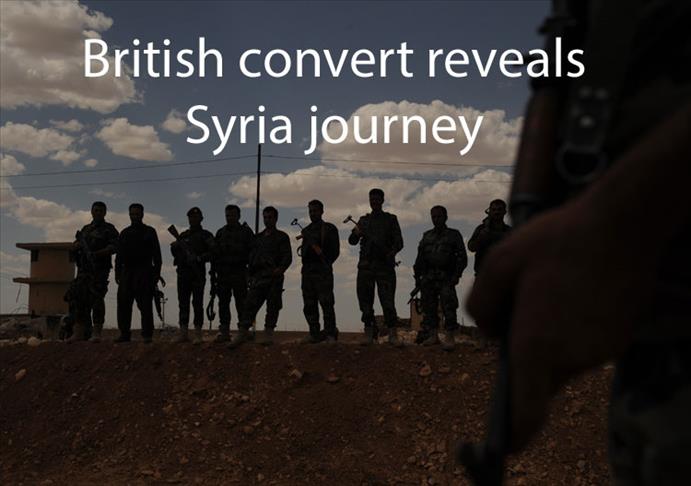
He ignored the warnings, took the risks, and hopped on a plane. Hours later – via Heathrow, Istanbul, and then over land to the border – he arrived in Syria.
A Muslim convert, born and bred in the UK, he was determined to join the fight against Bashar al-Assad.
“Syria is clear cut… People were getting slaughtered on a mass scale,” he told the Anadolu Agency from a London suburb.
He didn’t appear nervous. He was methodical and calm. He frequently paused mid-sentence to think about his answers, tilting his head to one side, his eyes glancing upwards as he contemplated the weight of his words.
“I went over to stop the slaughter.”
He’d agreed to meet and talk to AA on condition of anonymity. Anonymity? Do I really have to explain why?
For years, the British government has been trying to prevent such “homegrown terrorists.” Through its Preventing Violent Extremism program it has attempted to dissuade those it deems at risk from radicalization from traveling overseas and taking part in jihad (holy war). In its latest approach, Prime Minister David Cameron is reengineering this focus to concentrate on not just stopping wannabe fighters from traveling overseas – to Iraq, Syria, Libya, Somalia… – but also stepping up plans to remove their citizenship and stop them from returning to the U.K. Further strengthening the government’s determination are recent Islamic State videos that appear to show a still unidentified man with what appears to be a British accent beheading two U.S. journalists.
In the London home, the man picked up two chairs from the kitchen and placed them in the garden. He then took our mobile phones – his included – turned them off, and placed them on a wooden stand out of earshot, explaining that he – and others – had to be extra cautious now due to the change in British policy.
As he talked, his voice sometimes dropped to a whisper as if to ensure no one could hear. I looked around expecting to see someone, perhaps just a giveaway flicker of movement at a fence or as a neighbor went indoors. There was no one there.
Sometimes he talked about his journey in the first person, others in the third. One time he talked about “the brother he knew,” and it was only a few minutes later that I realized he was talking about himself. It was almost as if every word, every sentence, was carefully orchestrated so he could tell any court of law that he was talking about somebody else.
And so the journey began.
There’s two ways of getting to Syria, he said. “Pre-planned and freestyle.”
“I went to one place [in transit], and I stuck out like a sore thumb because there are no tourists there. People will approach you and ask you what you are there for.“
He makes his hand into a pistol, wiggling his thumb as if he’s cocking the hammer.
“You don’t have to say that you’ve come to do that,” he says. ”You say that you’ve come to help the brothers.”
He said that he’d heard that al-Assad had people working on Syria’s borders trying to funnel “would be helpers” to their side.
Once in Syria, they “slaughter them,” he added. “It’s from Allah if you make it across or not. There’s wrong been done and people want to stop it.”
In the border towns you wait, he says people cross backwards and forwards all the time. They come for “supplies,” and when they go back you go in with them.
In Syria, “contacts” took him to the rebel-held side of Aleppo where he was given an AK-47 – “I already knew how to use it” – and he joined the fight.
“You see before you a reflection of life – two extremes… You see the normality, because life must continue, and on the other hand you see the destruction that war causes. In any war zone it is the infrastructure – the roads and the buildings – that get hit.”
“You go past a school, you don’t see graffiti on the wall as you may do here in London, but you see bullet holes. People are living on a day-to-day basis.”
He tells AA how the Syrians reacted to him being in their country, because he was obviously a foreigner.
“Some people look at you and it’s like they’re looking at a dead man walking, it’s almost as if they’re saying ‘Why would you want to be here?’ But there are those that are obviously grateful that you have come to fight.”
He explains that in Syria foreigners are grouped depending on their ability, their experience, if they’ve been through “training” and if they know “the tools of the trade.”
“Whether you go to the front line is down to two things… whether they [the rebel group] think you are ready, or you think you are ready.”
Sometimes you don’t even see much action – “it all depends on what group you are with.” You can easily get shot at everyday. But if your idea of action is “operations, then it all depends on what is planned.”
He highlighted the difficulties with communication; most western fighters not knowing the local Arabic tongue.
“You need to relay orders and information to these guys and that needs to be done through a translator,” he says. “In the heat of battle, this can be an issue, so they need competent people.”
He’s tall, toned, and of an athletic build. When he looks you in the eye, his gaze is intense, his eyes clear. He obviously physically looks after himself, but for him there’s more to it.
“You see things clearly [out there],” he says. “You could spend hours praying. You’re freeing yourself from the world. You feel like something is calling you. It’s like waves upon waves of pleasure in everything you do. It’s like a very spiritual thing… you are spiritually high.”
And then – as I steal away from his gaze to consult my notes – a switch is flicked, his calm demeanor suddenly replaced by agitation and what appears to be confusion as I ask him what he thinks of the Islamic State.
“Nah,” he says, shaking his head. “I’m not part of them. I’ve never fought for them. But even if you believe the allegations… How about the people they [the West] kill around the world, the children that starve? How about them? How about the children that we don’t see on TV?”
And then a pause. He’s thinking again.
“Everyone can. Every organization has people that can make mistakes – that does not mean that the organization is bad.”
He veers off into an attack on the “capitalist system,” says that “people die everyday because of the exploitation and oppression.”
His hands are now moving fast, palms towards him, revolving between his knees in a controlled orbit, as if toying with a rubber band.
“What’s wrong with them [the Islamic State] if they have come to eradicate that? If you molest children, then you get a slap on the wrist, but if you dare defend people that are been massacred in Syria then they [the politicians] throw the book at you.”
“These guys, the government, they lie; trying all they can to hold onto power.British interests? – Just tell me the truth, don’t insult my intelligence. Then they try to shut you up, views that do not agree with the government, they try to shut you up,” he exclaims.
“An adult can make his own mind up. If you tell someone not to do something, they’ll do it. If you tell someone not to say something, they’ll say it… The government is its own worst enemy.”
He says he’s uncertain if he’ll go back, and attests to the chaos that has descended on Syria since he was there – just ”last year.”
“There are [now] groups that are fighting each other… [along with] groups that are fighting IS and Bashar. If you’re there just to fight Bashar then it’s difficult, as you have to find and join a group that is just doing that and not fighting another group at the same time.”
And then he’s back to Britain.
“Whatever you do [now], when you go out there, you’re going to get tarred with the same brush [by the government]. Whether you went to help people or whether you went to help IS. It’s the same thing to them. Those that went to Bosnia didn’t come back and commit terrorism. And there were lots of us that went to Bosnia. We were no threat to the UK. I don’t get how those that went to Syria first were not [considered] a threat and now they are.”
He’s not giving me an answer. I ask him if he will go back?
He clasps his hands and leans back in his wooden chair. It’s a good 30 seconds before he answers.
“If I go back, I’m not coming back [to the UK],” he says.
“If you come back you will be humiliated, put in jail and humiliated. That ain’t happening. I’m not naive and think that I’m going to change the world – You may get out there and change nothing.”
And then he puts me in my place, me sitting here with my comfortable life, judging him for his honesty and actions.
“The question is, did ‘you‘ ever see a wrong and try to change it?”
Read the original article published in Anadolu Agency on 13 September 2014
Let’s Not Make Child Grooming about Ethnicity, But We Can Talk About Race If You’d Like
The level of depravity and abuse revealed by the Jay report into the Rotherham child sexual exploitation scandal has shocked the entire country.
The fact that 1,400 children have been abused has been lost on some as they rush to link the crimes of predatory men to ethnicity.
The case that these crimes were carried out by Pakistani men does not warrant the level of attention it has received in the press.
We do not judge other crimes by race. But we could try. If journalists and politicians were to talk about crimes based on race what would it sound like?
“Ten white straight men jailed over North Yorkshire girl’s sex exploitation” is one headline a twitter user sent me. Are white people more inclined towards acts of mass murder – like murdering Native Americans; bombing Iraq, Afghanistan, Hiroshima, Nagasaki; slavery and colonialism? White people carry out the majority of sexual attacks committed against animals in this country. Is it something in white culture? Can I hear white community leaders condemning such acts? In fact, let’s hear from the highest ranking white community leader in this country, David Cameron, and have him explain and apologise for these actions carried out by white people.
Ridiculous isn’t it? No more ridiculous than repeated attempts to suggest that there is something inherent in Pakistani identity that would drive men from that background to commit sexual crimes against children.
However, there is a more fundamental issue underlying this entire debate about ethnicity. There is a longstanding assumption in the West that white people are somehow perfect – and that any crime committed by a white person therefore must be a deviation from that perfection. The crime is certainly never seen as a reflection on the race as a whole.
But when members of an ethnic minority commit crimes, it is seen as symbolic, something that reflects the imperfection of their race – an inherent flaw of their race and culture, or at the very least of their failure to adopt “Western culture” or “British values”.
This thinking, whether conscious or unconscious, runs throughout society and its institutions. But you rarely notice it unless you are on the receiving end.
When Anders Behring Breivik murdered 77 people in Norway we saw no long discussions about how his race or culture might be responsible for his crimes and precious little discussion of what role his fascist political beliefs might have played. Instead he was treated as an anomaly and his mental state called into question. God forbid that we embark on a deep analysis of the racism in society perpetuated by the media, institutions and culture. Let’s just blame this one individual that acted all alone.
Another example of a projection of white supremacy can be seen in the education system. When a Black child does well at school, he or she is presented as exceeding expectations – expectations that are determined by white assessment of black intelligence. When they do not do so well, it is seen as a reflection of their race. It fits with what was expected.
Contrast the situation with white children. When they do badly at school, they are seen as failing to achieve their potential (implicitly, their potential as a member of the white race). It is not seen as a reflection on white people as a whole, but again as an anomaly, or a reflection of that one individual. And of course, a discourse of class is also usually absent from all these discussions and analyses.
The discourse over ethnicity and race over the last week has revealed how the majority group, the white power structure, views minorities. The media reporting displays not just elitist thinking, but also how ideas of white supremacy infect the minds of those living in the West.
We even find ethnic minority voices parroting the same language and adopting the same paradigms, accepting the notion that we should view this issue through the prism of ethnicity, and of course, the white media is only too happy to promote those voices at the expense of those who would offer a more critical perspective.
Many of us have internalised the racist elite narrative after years of “education” and mental colonisation.
The fundamental problem is that by making this issue about Asians, Pakistanis or Muslims, the discussion is taken away from the actual victims. It also ignores or marginalises the non-white victims of these predatory criminals.
The victims are usually children at the very bottom of the social pyramid that are report abuse and are systematically ignored by the police and authorities. According to the NSPCC, many of Jimmy Savile’s victims were ignored or laughed at when they revealed that they had been abused. Specifically in the case of Rotherham, police treated the victims with disregard and spent a lot of time trying to disprove or disparage their stories of abuse. This is simply unacceptable – we need to thoroughly transform the culture of how victims are treated to ensure that their abusers are brought to book.
We should, as a society, be working together to target predatory men and protect our vulnerable from abusers and those who protected and enabled them. Let’s not forget how the authorities failed these children and blamed the victims. That’s the real issue, not ethnicity.
UK child sexual exploitation report raises racism fears
“There are issues within society, but it [child abuse] is not an Asian or a Muslim problem, it’s a [an all round] problem,” Raza Nadim told AA.
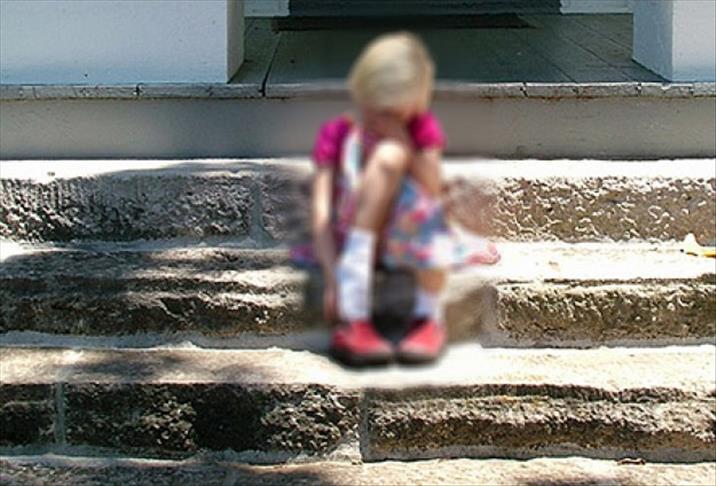
Allegations of institutional racism reared their head in the UK this week on the back of an independent report into child sexual exploitation in Northern England that found that 1,400 children had been the victims of “appalling” abuse between 1997 and 2013 – some of them as young as 11 years old.
Many British media outlets outraged race relations bodies by running stories on the findings with headlines highlighting the ethnicity of the perpetrators, after the report – commissioned by Rotherham council – identified the majority of those alleged to have “sexually groomed” children as of “Pakistani origin.”
Muslim Public Affairs Committee U.K. spokesperson Raza Nadim told the Anadolu Agency that he was “infuriated” by the suggestion that race was an issue in the crime, and the subsequent politicization of ethnicity as a factor.
“There are issues within society, but it [child abuse] is not an Asian or a Muslim problem, it’s a [an all round] problem,” Raza told AA.
“Blaming Asians or Muslims stokes up more tension and takes us away from the discussion we should be having… which is why did this happen in the first place and what can we do to help the children get through this?”
Race “should not” be the issue, he says, but “if we are to look at the wider UK and the race of those committing such crimes, then there are a lot of white pedophiles, there’s a lot of white sex offenders.”
It’s an issue that also concerns writer and journalist Steve Rose, with British society still coming to terms with the outing and charging of prominent white TV presenters from the 1980s for preying on the young.
“We haven’t racialized Jimmy Saville or Rolf Harris, or we haven’t said that there’s an institutional problem with white grooming gangs,” he says. “It’s a factor but it’s not as big as a factor as is being made out.”
The report – released this week – found that gangs of men groomed, abused and trafficked vulnerable children while victims were disregarded by police, and the local council – despite several reports highlighting abuse – had ignored the alleged abductions, beatings and trafficking of children to other towns and cities so that the abuse could continue. Many were also raped by different men.
As a result of the findings, Rotherham council leader Roger Stone resigned acknowledging “historic failings.” The local police and crime commissioner has also resisted calls to leave his post – with allegations of an institutional fear of racism also being leveled.
Among the many charges in the report were those from a previous inquiry in 2006 that said that “Young people in Rotherham believed at that time that the police dared not act against Asian youths for fear of allegations of racism.”
“This perception was echoed at the present time by some young people we met during the [latest] inquiry,” the report stated, but went on to conclude that “The Inquiry team was confident that ethnic issues did not influence professional decision-making in individual cases.”
This has not been reflected in the media coverage, states Rose.
“A fear of racism does not explain why the police viewed someone as promiscuous and being deviant. It’s good old-fashioned victim blaming, and what that does is when institutions fail people it enables the abusers to continue.”
“When you link child sex exploitation to race you undermine the seriousness of the topic. It’s not really about race… It’s about power… Making the issue about race, demonizes communities and ignores the victims who are not white.”
Disagreement, however, comes from the very community at which the finger is being pointed, Mohammed Shafiq – the Chief Executive of the Ramadhan Foundation and himself a British Pakistani saying “there is” a problem within.
“We in the Pakistani community have got a problem, particularly in northern towns where they think white girls are worthless and they think they can use and abuse them in this abhorrent sort of way and have no regard towards the sanctity of life,” he told AA.
“It’s something the community will have to confront, rather than looking for excuses, or rather than looking for other people to blame.”
Race is not the only factor, but it is “certainly quite a factor,” he admits.
Shafiq has come in for criticism for his views – not least from the British Pakistani community – but he remains adamant that he has the right to speak out.
“The fact [is] that this evil exists within our community, and we just have to do more to be outspoken about it,” he says.
He told AA that Pakistani and Kashmir men “tend to go for the white girls because they’re easier to get a hold of and easier to groom.” They are particularly targeted, he says, so the men don’t get any “fallback within the [Pakistani] community.”
But its not just race we should be scrutinizing, he says, but also our cultures.
“Within our [Pakistani] community our children are not around at that time of the morning, but some of these other girls are outside at 2 or 3 o’clock. This is an issue we’ve got to have a look at.”
“As parents, do these people know where their children are? Why are 13-14 year olds wandering around the streets” at this time?
“When you start to see padded bras in shops, and teenage magazines full of sex and the promotion of sexuality, then that all contributes to society where people think it is an acceptable form of behavior to be [a child and hanging out at 2am and] engaged in sexual activity with someone under the age of 16.”
Read the original article published in Anadolu Agency on 28 August 2014
UK government approach to extremism not working, say experts
‘Domestic and foreign policy must be re-examined rather than new laws being introduced,’ specialist in counter-terrorism tells AA.
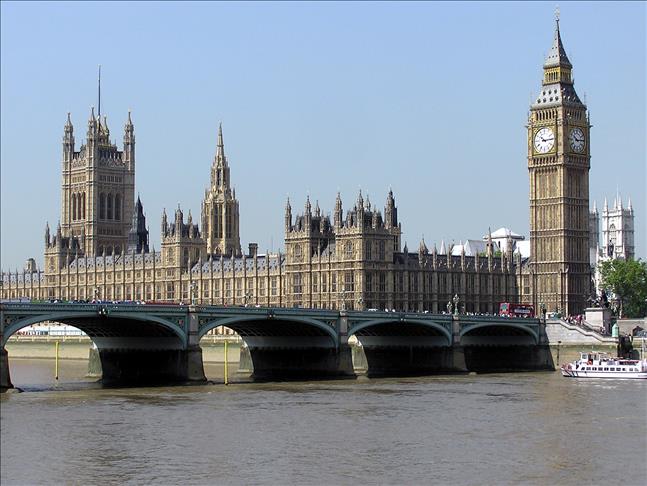
A leading specialist in counter-terrorism has questioned the British government’s approach to extremism, stating that attempts to further criminalize those taking part is not the answer – that they should be looking at the cause not the crime.
In the wake of a video that appears to show a British citizen beheading an American journalist on behalf of the Islamic State (IS), the government is clamoring to clamp down on nationals travelling to Syria and Iraq to fight alongside militants, many politicians calling for tougher action against those that go and fight for the Islamic State. Home Secretary Theresa May wrote last week that she was preparing to bring in new laws that include an “anti-social behavior order” for extremists.
Dr. Rizwaan Sabir, a specialist in counter-terrorism and political violence at the University of Bath in southwest England told the Anadolu Agency this week that the government is not doing enough to deal with the root causes.
“From those who have been convicted for terrorism, domestic grievances and foreign policy were the main contributing factor, hence it is domestic and foreign policy that must be re-examined rather than new laws being introduced,” he said.
According to the government, 500 British nationals have travelled to Syria to fight for the Islamic State – a “terror” outfit formerly known as the Islamic State of Iraq and the Levant that has seized swathes of Iraq and Syria.
The government, however, has dismissed British foreign policy in the region as a motivating factor in young Muslims travelling overseas to fight; in 2011 Prime Minister David Cameron claiming that the root of the problem was down to the “existence of an ideology, ‘Islamist extremism’.”
“Islam is a religion, observed peacefully and devoutly by over a billion people. Islamist extremism is a political ideology, supported by a minority,” he said during a visit to the German city of Munich.
Jahan Mahmood, a counter-extremism expert and former government adviser, agrees that UK foreign policy is a factor, but adds that a major contribution comes from the moral crisis that many young male Muslims face in Britain today.
Some of these men have been involved in drugs, crime and lived promiscuous lives, all of which are considered sinful within Islam, he told AA. And then, while trying to deal with that guilt and seek forgiveness they are presented with “images of brutalized [Muslim] men, women and children” which “coupled with a desire to make a difference in the world and to get to heaven” leads them to “others” with more militant leanings.
“It’s a mixture of what they see as their duty [and] issues at home such as disempowerment and disillusionment, and… [problems] with their own family and wider society,” he says. “And then of course, verses [from the Quran]… make them feel that they are doing the right thing, [verses that will] secure them a place in heaven, ultimately.”
Mahmood recounts a story of a young man he worked with, who became convinced that he should go abroad and take part in armed conflict.
“He read that as soon as the martyr’s blood touches the ground that he is accepted into heaven. And that was it,” said Mahmood. “He didn’t need anything else more comprehensive… he had no understanding of its context and no idea of anything else. That was all the motivation he needed.”
Mahmood, however, underlines that not everyone that travels to Syria joins such groups as the Islamic State.
“There are other groups as well and there are groups that we [Britain] are supporting. To turn around and tarnish everybody that goes to Syria as joining ISIL is a little bit irresponsible,” he told AA.
Groups such as the UK-based Muslim Public Affairs Committee agree, saying that there are several factors that lead to the radicalization of young British Muslims.
“Some [of those who go off to fight] actually foolishly believe that these people [IS] are on the prophet’s path… They really are that deluded,” spokesperson Raza Nadim spokesperson told AA. “Part of it comes from [the sense] of being disenfranchised [that comes from] living in Britain and other countries.”
But the path should not lead to Islamic State Leader Abu Bakr al-Baghdadi, he adds. The “caliphate” has no legitimacy “so even though there are some deluded people that are joining, let’s not think that IS has a great deal of support within the UK.”
Premier Cameron and his security chiefs have stated that foreign fighters returning from overseas pose a great threat to the UK, telling parliament in June that the government has stopped people from travelling – taking away their passports – in an effort to stop them being radicalized.
Dr. Sabir finds great fault in this approach.
“There is a lack of empirical evidence to support the claim that British nationals returning from Syria and Iraq pose a direct threat to the UK,” he says.
“Existing evidence shows that nearly all the individuals who have been convicted for terrorism offences since 2001 did not go abroad to fight or train. The issue of ‘blowback’ is therefore difficult to empirically measure at present.”
This view was supported by a report published last month by campaign group Cage, a charity that campaigns on behalf of the victims of the war on terror.
The report – “Blowback – Foreign fighters and the threat they pose” – said that the British government’s policy is “confused and dangerous” and has “created a climate of fear.”
Read the original article published in Anadolu Agency on 27 August 2014
